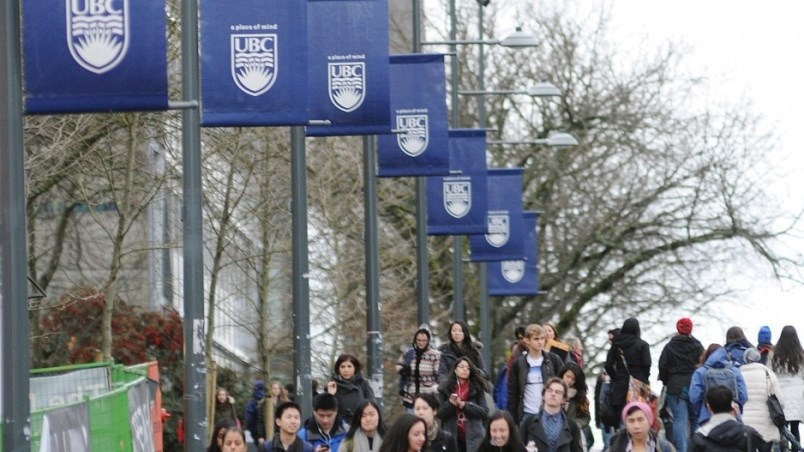Canadian universities with significant international student populations and extensive exchange programs in Asia are each taking unique approaches to how to respond to the ongoing coronavirus outbreak in China — although everyone shares one key measure: Staying vigilant.
The outbreak has killed more than 100 people — mostly in the Central Chinese city of Wuhan and surrounding Hubei province — as of Tuesday, and health officials warn cases of infection are accelerating (4,515 at last count). Currently, cases have been reported in Canada, the United States, Australia, New Zealand, Japan, South Korea, Taiwan, Hong Kong, Thailand, Singapore, Vietnam, Nepal, France and Germany — although no deaths have been reported outside of Chinese borders.
B.C. officials reported its first confirmed case of the coronavirus this morning.
At Simon Fraser University, school officials published a blog post Monday about receiving a number of questions from students, faculty and staff about the coronavirus outbreak. The school said it is “actively reviewing its infectious disease protocols, pandemic plan and meeting with key stakeholders” to ensured preparedness.
However, SFU has not indicated it has cancelled or diverted its exchange programs to China at this point, saying only that officials “have reached out to our students on co-ops and exchanges in China to check on their well-being, and to provide support as well as the latest travel advisories and guidance.”
Officials also cautioned against unnecessary panic around the outbreak, asking students and faculty to wash hands, stay home when ill and practice proper etiquette when coughing or sneezing: “Cold and flu season is upon us (typically October to March every year), so it is not unusual for people to get the cold and flu during this time.”
SFU is also referring people travelling to China through the school to federal travel advisories and to register international trips with SFU to aid tracking.
At the University of British Columbia, officials confirmed there are currently 34 co-op and exchange students in the outbreak area of Wuhan city and Hubei province, and they have been made aware of the resources that are available to them.
However, the school has not cancelled or redirected any exchange programs with the Chinese market, said UBC director of university affairs Matthew Ramsey — although discussions have taken place.
“The best advice we can give is to keep aware of what’s happening,” Ramsey said. “Pay attention to the advice of folks like the B.C. Centre for Disease Control… and to stay current on what’s happening overseas.”
Ramsey added the school is monitoring the local student and faculty health situation through student-health facilities here in Vancouver, as well as stepping up informative efforts for everyone on campus or wanting to travel to Asia through UBC programs.
“We’ve put up notices in the buildings, advising students on what they should do if they feel any of the symptoms,” he said. “We’ve advised our faculty on what’s happening. We’ve advised people who are working through UBC for their travel plans… We’ve really been pushing messaging to our students.
“So we are just monitoring and seeing how things go,” Ramsey added. “I wouldn’t want to speculate on what might change in the coming days at this point. It’s just too early.”
The approach is different at Western Ontario’s Ivey School of Business, where the school is taking the better-safe-than-sorry approach by diverting exchange students and study trips away from the affected regions of China for this term, said associate professor of international business Andreas Schotter.
He added that there does not appear to be any major concerns on campus among the students or faculty about new potential exposure points, as the term has been in full swing since the first week of January — and no new students are expected to arrive in the near future.
But the fluidity of the situation is something everyone should be mindful of, Schotter added.
“Just 10 days ago, it was not an issue; however, this has changed,” he said. “We are monitoring this on a daily basis now… we are advising students to be vigilant. Personally, I am closely following local report from a variety of sources including personal contacts, media and government comments.”
Read the original article .



